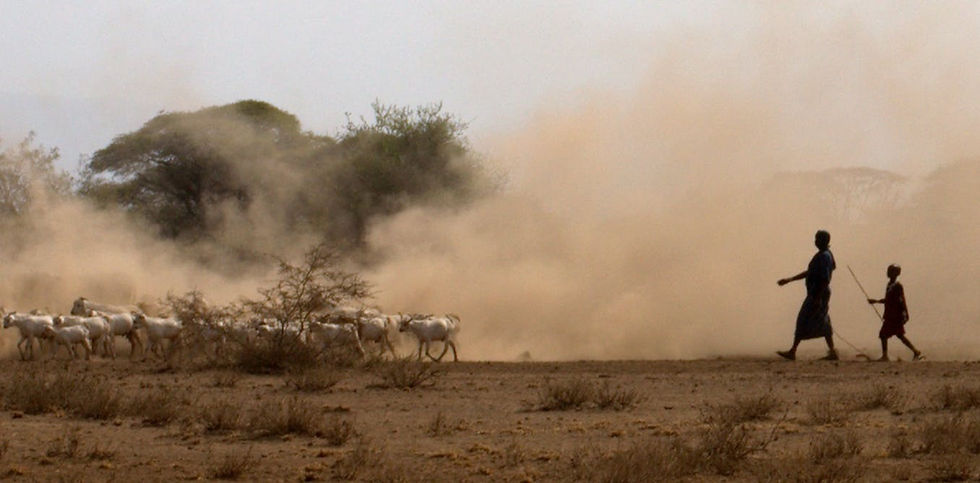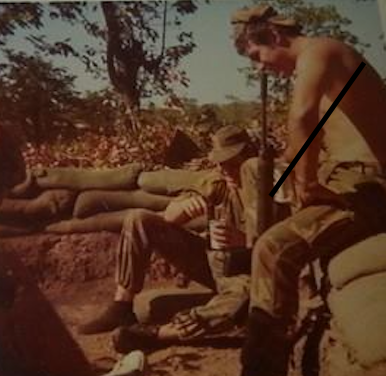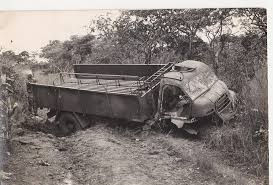
What a weekend of rugby! Ireland absolutely animated a substandard Welsh team with one of my favourite players contributing to their poor sportsmanship with an unnecessarily dangerous body check on Sexton who throughout the game was one of the main protagonists making the day a misery for Wales. Then came the important game, the Calcutta Cup. At my old school, Keil, we attended when there was an international match at Murrayfield. In those days it was mostly standing terraces. At college, we also would attend the matches. In my last two years at college, Scotland won four on the trot in the early 1970s. Never to be repeated. We are now excited to win two on the trot as we did this week. It was a close game where guile outwitted the stronger team to win. Of course, I am sure frustration in not scoring more points early on brought about a couple of irrational plays by the English, so by the end, they had become observably the weaker team.
“Brain always outdoes brawn, unless the brawn already has you in their grasp. Then your brain switches to survival not winning.” - Peter McSporran
I was happy the better team lost. For some reason, I am not a great admirer of Gregor Townsend but he certainly outthought Jones on Saturday.
There were a couple of other events that occurred over the weekend, one challenging and one hopefully to lead to some good old reminiscing of my time in National Service. After posting last weeks blog, Doug Southgate contacted me telling me some of my recollections were jogging his memory to his enjoyment. I replied and hopefully, in the near future, we will speak to each other more about those days. Doug went to the School of Infantry with me, he became an officer, me a sergeant. He was by far the best of the three National Service Lieutenants we had. Unfortunately for me, he was not my platoon commander, fortunately for him, I was not his sergeant. Doug came from Mangula before moving to Salisbury after spending some time at University in South Africa. I have not heard from him directly for some 48 years, although he contacted me on messenger briefly last year. I regrettably did not follow up.
The second event; the challenge, was for me on three consecutive days to collect a stool sample. As I said following my trip to Africa late last year my stomach has not been behaving. I have lost 5 kgs. Anyway, trying to catch poo is hard enough, the lady at the analysis clinic said it should be the size of an olive in a very small bottle. Yeah, right. Rozanne had me on her organic cement for three days which made the process in every aspect much more difficult. Needless to say, just a day after stopping her diet of rice, bread and bananas the world fell out my backside again. Anyway, I did succeed with the delivery of the samples from the fridge early Monday to Rozanne’s relief.
The final event was both Rozanne and I were stopped to have our car papers checked on our way to Penela. The first time we have been stopped by the police since arriving here in Portugal nearly five years ago. A daily occurrence in Africa and in fact in Zimbabwe for many years an hourly occurrence.
Just for your interest, Portugal is in drought. My neighbours inform me how bad it is not having rain. At this time of year, they grow forage and root crops for their animals. Animals are kept inside in winter and fed the grain and root crops. The Portuguese I find unique in their eating habits as most meals have both rice and potatoes on the same plate. Potatoes are prepared in many forms with chips or fries the most favoured. Anyway, we have cool, not freezing nights, coupled with beautiful sunny days. 3 to 4°C at night, 18 to 20°C in the day.
First Casualties
Once again arriving at JOC (Joint Operational Centre) Mt Darwin, we were dispatched to the Rushinga area with the company setting up camp right next door to Rusambo Mission, which had a secondary boarding school for girls. I presume the Major decided it was a good spot as it would give us access to clean water. On our previous trip, he had done the same at Marymount Mission before we ended up at Nyakasoro Dam.

As our platoon was in the base that night we set ourselves up as part of the all-around defence perimeter, each man digging a shell scrape next to his designated firing position. Firing positions and fields of fire are prerequisites in setting up any defence position. For those laymen, each man is given a position to fire from, obviously facing outwards, and then allocated a field of fire. From his position, if you can imagine a sort of V shape, it slightly overlaps the man on each side of his field of fire.
As evening approached following the return of the clearance patrol, once again a must when in camp. Clearance patrols would go out just before the last light and just at the first light to try and pre-empt any close-quarter surprise attacks. This evening the patrol came back with nothing to report and we all headed off to the mess tent to grab our evening meal. We had just settled down, I with a beer and grub in the officer and sergeants mess tent when we heard the distinctive thump of a mortar being fired. We all knew the sound as we had used mortars in training, each platoon even carried one. We heard the first one in the air, not having heard this part before, as, in training, rounds were always fired well short of us. As we leapt to our feet to head for our firing positions, we paused to exchange smiles as we saw the 2I/C diving under the mess table for cover. Neither a place of safety nor defence. Some officer! As we ran to our positions we heard another mortar incoming followed by a third once we were on the boundary. I remember each time listening and wondering where the rounds would land. Near me? Only afterwards we learned that if you hear the mortar shell, or for that matter an artillery shell, then it has already passed over your head. You do not hear them incoming. That is for the movies.
If I remember correctly it was a feeble effort with only three rounds being fired without the usual small arms fire and attack following. It did however cause hysteria among the young ladies in the boarding houses in the mission. So much so we thought perhaps they had suffered a direct hit. On quick investigation, this was not so, although those sent to investigate came back quite shaken, perhaps more shaken in having to deal with those ladies.

Meanwhile, fearing further attack the OC, Major Gilcrest decided to dispatch a stick to a closeby hill about a kilometre from our camp. As it was the only hill in the area, he thought maybe the mortars were being fired from there. We actually had no clue exactly where, except it was from the north, I did not think from the hill though. Probably as his least favourite sergeant I was sent out leading this stick, in the pitch dark. We had to circumvent a dam, cross a stream in flood as it was nearing the end of the rains and climb the rocky outcrop. It was extremely tough with thick bush and large rocks. If anyone had been up there, they would have heard us well before we arrived. We arrived without incident staying alert until the next morning. We had left with no food or bivvies, so it was a long cold night followed by a hungry day. From the hill the following day, we directed ground troops to apprehend anyone looking suspicious. In our eyes this was everyone. Meanwhile, in his wisdom, the OC decided to call in all the other platoons back to base, for what reason I have no idea. From our OP on the hill, we saw the cloud of dust rise followed immediately by the explosion as one of our trucks hit a landmine not far from our camp. At this time, although kitted with conveyor belting and sandbagged, our vehicles were not really properly protected against landmines. We were to learn on the radio that 4 Indep Company had had its first casualties with two injured, one of them becoming a paraplegic for the rest of his life. Why had we not sent out a foot clearing patrol? I do not know. We all knew the danger of mines on the roads after an attack. Doug Southgate was also on that vehicle though luckily uninjured. That day we knew, we were now in the war. For 4 Indep Company, it was to continue as a game of hide and seek, they kept hiding and we were pretty useless it seems at seeking.
The Challenges of Investing in African Agriculture Part X - Corruption
I suppose most people who have lived or invested in Africa wonder why I have not mentioned corruption before. Corruption is endemic in Africa from petty to a more grandeur scale, often the latter at the instigation of household name corporations dealing directly with Governments or people with political influence. Admittedly it is getting more difficult to operate this way. Not so for some, especially the Chinese. They often walk into statehouses openly with ‘brown paper bags’. In history, Rhodes paid chiefs for land and mineral rights that did not belong to them. The master of all post-colonial African entrepreneurs, Tiny Rowland. He built an empire by political patronage which even the British Government was afraid to look into too closely as it would affect their interests. His company was the largest in Africa and the 15th largest in the UK at one time.
Of course investors, large and small, nowadays have strict governance and transparency rules although from what I have read, rules are still broken. Oil companies in Angola and Nigeria make politically connected citizens and their sponsors exceedingly rich.
For the average investor, they or their employees will come across corruption in one form and another. It causes great stress, frustration with many investors, if honest, walking away or if falling into the temptation to pay for expediency or access will only lead to embarrassing legacies which will be used as levers in the future. The South Africans were especially prone. On the road, I have found myself haggling against a fine/bribe with an official only to see him lose interest in the event of a South African driving up, preferring the softer target. Remember corrupt officials are generally lazy. Unfortunately, too many put bribes down as a normal business cost in Africa.
“Even if you think you are giving a discreet bribe this is unlikely to remain so. Mobile phones help the corrupt to share targets. Further, in future, you may not recognise them but they will remember you.” - Peter McSporran
In Rhodesia and Zimbabwe, we had a sheltered life although we knew corruption existed. How else could you break sanctions unless you employed an organisation with the connections to do so at the delivery or procurement points? On the whole, however bribing police was not done and the Government officials, from inspectorates to licencing agents did not ask for bribes. However, within five years after independence, poorly trained Government bureaucrats soon realised that money was to be made by just carrying out their job. A few dollars would find that missing file or instigate that missing signature.
I thought for my interest as much as yours I would review the sorts of corruption I came across in my time in Africa. These categories are purely mine although the Canadians simply break corruption into two types, ‘grand’ and ‘petty’ The former is political by elected Governments and their representatives. Petty by bureaucrats in carrying out their jobs or law enforcement. The trouble with corruption; if the leaders are corrupt it becomes systemic within a country.
“If a Government is corrupt, the nation's population believe it is also their right to share in the honey pot, even if it means destroying the hard-working bees.” - Peter McSporran
I will break my corruption categories into seven. Petty, Advanced Petty, Opportune, Motivation, Bureaucratic, Corporate and finally Political Patronage.
1. Petty
I categorise the petty to those minor payments in place of an actual charge or fine. That is, for example, you are caught speeding or jumping a red light and the policemen stopping you offers you to pay a reduced payment in lieu of a fine which would be more than the requested payment. As you are guilty, many will pay the lower amount, unfortunately, this will only engender the venality in a person. In government departments, free lunches are a common request for a small task being carried out immediately rather than after lunch. They never amount to large values although inevitably inflate with time.
2. Advanced Petty
Here, the policeman claims you were speeding when you were not, you jumped the red light when you did not, or the customs officials tell you there is missing paperwork or errors in your documentation when there is not. The government official cannot find your file sitting in his bottom drawer. Of course, the main tool to extract payment here is your time. If payment is not forthcoming they will be happy for you to sit at the side of the road for hours. Do not try to leave or you will be charged with not stopping or disobeying a legal instruction which attracts higher fines or perhaps the threat of court. The customs official is happy for you to sit all day outside his office, you are fretting about the time, he is not. Rozanne, when we were not long in Zambia got detained under the pretext she was working without a permit. All she did was visit my office. She refused to pay the bribe requested openly once she was in the vehicle en route to the immigration headquarters. She was warned and cautioned, meanwhile I went off for a drink at O’Hagens. She still thinks I was uncaring and brings it up even now. It became very tense by the evening although finally, a senior immigration official released her before she was taken to prison for the night. A harrowing experience in a new country, but not unique. Especially so that day for Rozanne, as it was also her birthday.
With regard to the above, I have always been lucky to deal with these situations in a broad Scottish accent with much bluster and controlled aggression in my refusal to comply. Often to the chagrin of people in my company. When roadblocks were rife in Zimbabwe, Rob Fisher my passenger refused to travel any further with me as he was convinced my actions would see us being arrested. He thought the bus would be safer. It has stood me in good stead, maybe because people do not understand my accent as I have the same success in all African countries.
Age also helps.
I will continue with corruption next week.
Disclaimer: Copyright Peter McSporran. The content in this blog represents my personal views and does not reflect corporate entities.
Comments